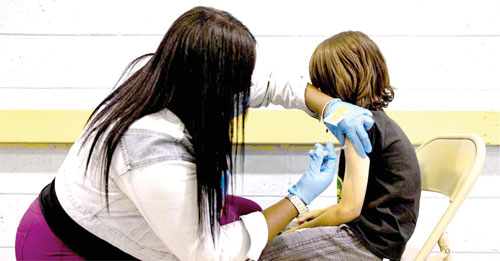Research is underway across the nation to develop a universal COVID-19 vaccine that would be effective against future coronavirus variants. Part of the research is occurring at three U.S. universities that received $36 million in grants last fall. The U.S. Army is also working on a universal vaccine that involves a specific type of spike protein. Experts say these types of vaccines could also help with other diseases such as influenza and Ebola.
The vaccines for COVID-19 have saved hundreds of thousands of lives nationwide and worldwide. In developing these safe and highly effective medicines, scientists have achieved in less than a year what can often take decades. But the limitations of these vaccines and the unpredictability of coronavirus variants are becoming apparent. That’s why several of the top scientists in the United States have begun working on a new and even more ambitious vaccine technology.
Current vaccines are expected to continue providing protection against severe illness, hospitalizations, and deaths due to infection with the Omicron variant. But scientists don’t know how effective the vaccines will be against new variants that might arise. To address this, researchers are developing universal vaccines that potentially work against all known and unknown variants and can fight multiple coronaviruses at once.
Yoshihiro Kawaoka, DVM, PhD, a virologist and professor of pathobiological sciences at the Univer-sity of Wisconsin’s School of Veterinary Medicine, is one of the scientists who’s been chosen to take on this task. Kawaoka told Healthline that he and others are working to make a vaccine that “will work on all coronaviruses and any variants.” “We have just begun our research, but the concept works,” he added.
The idea, Kawaoka explained, is to generate an even more robust group of vaccines that fight a variety of coronaviruses with a primary focus on potential pandemic-causing coronaviruses such as SARS-CoV-2. “This so-called ‘pan-coronavirus vaccine’ is basically preparing us for the future,” said Kawaoka. When asked how often this vaccine would likely be given to people, he said, “We do not know yet. But ideally, it would be at most two vaccinations.”
When asked what kind of impact a pan-coronavirus vaccine could have nationwide and worldwide, he said, “I think it would be big.” What can you learn in a month without alcohol? It’s never a bad time to check in on your relationship with alcohol. Learn how to navigate a month of sobriety with the month-long Alcohol Reset Challenge.










